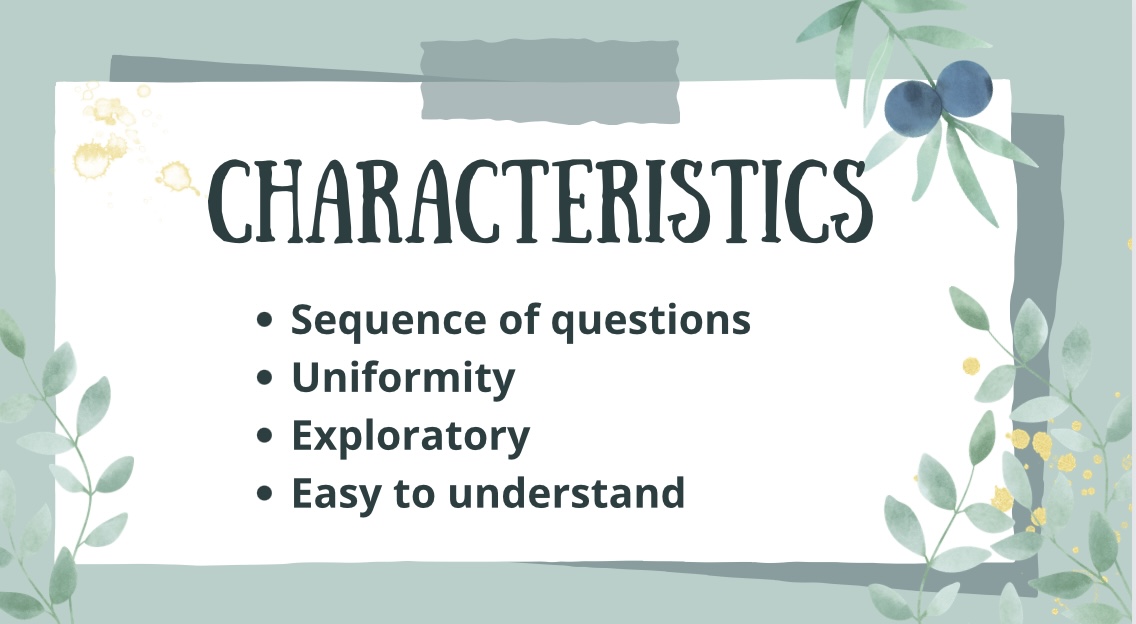DEFINITION: a questionnaire is a research instrument that is used by researchers to collect information from the respondents. It consists of a series of questions that help researchers to learn what a respondent thinks or what is his opinion on the topic on which the questions are asked.
Collecting information using questionnaires is one of the most inexpensive, efficient, and fast ways. The data collected using the questionnaire is relatively detailed and sorted as compared to the other methods of gathering information. Moreover, the data can be obtained from a large group of people.
CHARACTERISTICS:
* Sequence of questions: a proper series of questions should be followed to increase the rate of response to the questions.
Therefore, it is necessary to develop a structured sequence of questions that contain questions in the sequence. The sequence of questions is like screening questions, warm-up questions, skip questions, transition questions, complex questions, and classification questions, etc.
* Uniformity: the uniformity of questions is essential to keep respondents involved in the questionnaire until the end. Consistency of questions plays an important role, especially when you want to collect information about personal opinions, demographic data, or facts from the respondents.
* Exploratory: exploratory characteristics of the questionnaire help you in collecting qualitative data. You can ask any question as long as it is related to the subject.
The exploratory nature of a questionnaire helps you in getting detailed information about the topic.
* Easy to understand: a good survey is easy to understand. It should be designed in such a way so that everyone can read and understand the questions irrespective of their education level.
MAIN USES:
ADVANTAGES:
* It takes less time to collect information from a large group of respondents.
* A researcher is not required to be present all the time to get the responses of the respondents.
* A researcher can email or send questionnaires to the respondents and get their answers quickly.
* The questionnaire is an inexpensive method of researching as a researcher; you are required to prepare the right set of questions and send them to the respondents to obtain their responses.
* The data collected using questionnaires are easy to compare with the data collected through the previous method.
* Questionnaire is the best method to get responses from people who are not comfortable in revealing their identity.
DISADVANTAGES:
* Limited depth of information: The main downside of limited depth of information is the potential inability to capture detailed and nuanced insights from participants. Questionnaires typically rely on structured and predefined response options, which can constrain participants' ability to provide in-depth responses.
* Low response rates: low response rates is the potential for non-response bias and the potential impact on the representatives and generalization of the collected data. Low response rates occur when a significant proportion of individuals invited to participate in a questionnaire choose not to respond or do not complete the survey.
* Limited engagement: Limited engagement refers to respondents' lack of interest, attention, or active involvement during the questionnaire completion process.





.png)
Comments
Post a Comment